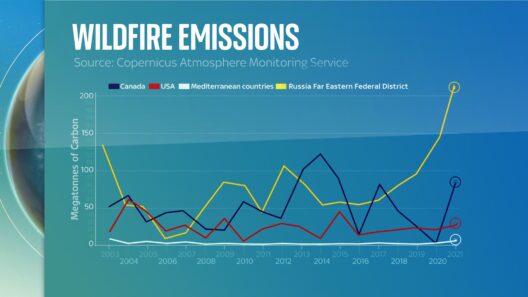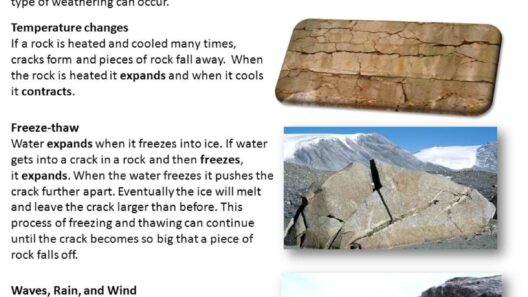As the winds of change sweep across our planet, the reverberations of climate change resonate profoundly, particularly in the realm of human health. It is an intricate tapestry woven with strands of ecological disruption, social inequality, and human resilience. Understanding how climate change impacts our well-being requires a multifaceted lens, revealing hidden costs that often elude the spotlight.
At the very essence of health lies the delicate equilibrium of our environment. The interconnectedness of ecosystems dictates not only the vibrancy of life forms but also the robustness of human health. With climate change acting as an unseen puppeteer, the strings of this balance are tugged in unpredictable directions, leading to cascading effects on our health.
1. The Rising Temperatures: A Fevered Planet
The average global temperature has ascended steadily, akin to a fever marking the body’s struggle against affliction. This rise is not just a statistic; it fuels the flames of heat-related illnesses. From heat exhaustion to heatstroke, vulnerable populations—particularly the elderly, children, and those with pre-existing conditions—find themselves ensnared in this perilous web. Moreover, higher temperatures exacerbate air pollution, giving rise to conditions such as asthma and chronic respiratory diseases, which plague millions across the globe.
2. Compromised Air Quality: Breathing in Toxicity
The convergence of rising temperatures and altered weather patterns catalyzes the formation of ground-level ozone, a harmful pollutant that wreaks havoc on pulmonary health. The chronic inhalation of these toxins can lead to cardiovascular diseases and diminish overall lung function. Populations in urban settings are especially vulnerable as smog blankets cities, ensnaring inhabitants in a murky atmosphere, where each breath becomes an endeavor laden with peril.
3. Vector-Borne Diseases: The Uninvited Guests
A pivotal aspect of climate change is its role in transforming the habitats of disease-carrying vectors such as mosquitoes and ticks. As temperatures rise and precipitation patterns shift, these vectors extend their range, infiltrating regions previously unscathed by diseases like malaria and dengue fever. Consequently, the emergence of these vector-borne diseases foreshadows a public health crisis, as medical infrastructures grapple with the escalation of cases while the ecological nuances of these diseases remain poorly understood.
4. Water Scarcity and Quality: The Thirst for Life
Water, the elixir of life, becomes a double-edged sword amidst the turmoil of climate change. Diminishing water supply, compounded by contamination from increased precipitation and flooding, heralds a multifarious array of health issues. Waterborne diseases such as cholera and dysentery flourish in such an environment, preying upon communities with inadequate access to clean water. Moreover, the psychological toll of water insecurity, manifesting as anxiety and depression, adds an insidious layer to the overarching narrative of health decline.
5. Food Security: The Harvest of Suffering
The agricultural landscape is irrevocably altered as climate change incites erratic weather patterns, affecting crop yields and food security. Droughts, floods, and shifting seasons challenge farmers’ perseverance and, in turn, the nutritional health of populations. Malnutrition rises as access to diverse and nutritious food sources dwindles, particularly in low-income regions where food deserts burgeon. This culinary malaise further entrenches chronic health issues such as obesity and diabetes, forming a spiral of deteriorating health outcomes.
6. Mental Health Impacts: The Gloom of an Uncertain Future
As the realities of climate change unfold, the psychological ramifications are often overlooked, yet they carry substantial weight. The trauma associated with natural disasters, the anxiety stemming from uncertain futures, and the pervasive feelings of helplessness contribute to an escalating mental health crisis. A growing body of evidence suggests that individuals exposed to extreme weather events exhibit higher rates of post-traumatic stress disorder (PTSD), depression, and anxiety. The mental toll underscores the urgent need for a holistic approach to health that encompasses emotional and psychological well-being.
7. Socioeconomic Disparities: The Great Divide
The inequities of climate change manifest starkly across socioeconomic strata, exacerbating health disparities. Marginalized communities often bear the brunt of environmental degradation, suffering from inadequate resources to adapt to changes or recover from disasters. Vulnerable populations face heightened risks from heatwaves, respiratory illnesses, and food scarcity. Addressing these disparities necessitates a comprehensive approach towards climate justice, ensuring that all communities are prioritized in health and environmental policies.
8. The Path Forward: A Collective Awakening
As the shadows of climate change loom ever larger, a clarion call for action resonates with urgency. Societies must embrace preventive measures that mitigate the repercussions of climate change on health. Integrating public health perspectives into climate policies, enhancing preparedness for extreme weather events, and fostering community resilience are imperative steps. Furthermore, raising awareness and mobilizing communities in advocacy can catalyze significant change, promoting a healthier and more equitable future.
In conclusion, the myriad ways climate change impacts human health underscore the intricate dance between our well-being and the environment. Recognizing these hidden costs compels individuals and communities to forge ahead with determination. The narrative of climate change transcends isolated crises; it is a collective story of survival, adaptation, and hope. The journey toward understanding and addressing these impacts starts not just with acknowledging the challenges but with envisioning a healthier, more sustainable world for future generations.





